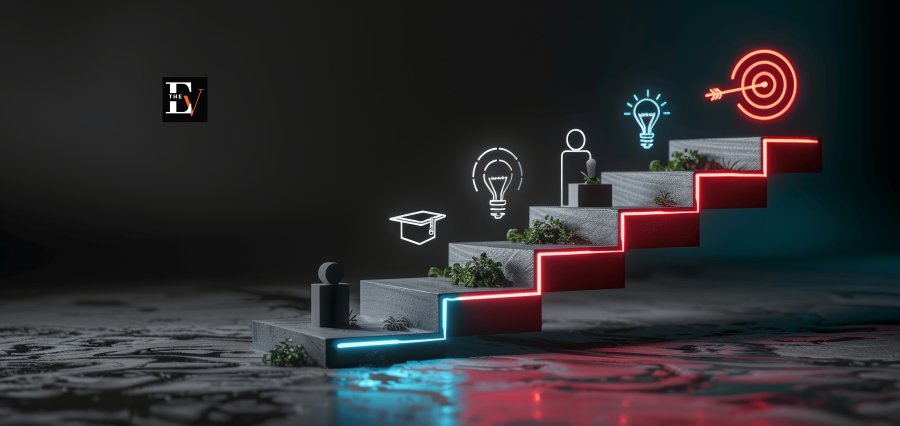Navigating Challenges
When students are on the path to higher education, they undergo various barriers that can impede personal, academic, and professional growth. Colleges play a crucial role in helping students navigate these challenges. To nurture cultures that focus on the comprehensive development of an individual, it may be necessary to adopt considerate and inclusive practices. The subsequent discussion of the whole-person development provides avenues to academic success, mental health, and long-term preparedness to post-graduation life. The key aspect of this undertaking is well-developed student success strategies, which make learners succeed in the challenging conditions of college life.
Understanding the Landscape of Student Challenges
Majority of students enter college with academic abilities due to previous education, yet time management, critical thinking, and self-directed study issues. Emotional burdens, solitude, and uncertainty can worsen these challenges, especially in a new or stressful setting. Moreover, financial constraints and external burdens may compel students to juggle both employment and schooling, causing burnout. The first step towards successful intervention is the awareness of these difficulties.
A Holistic Approach to Educational Support
A holistic system is one that does not focus on grades only. It includes academic, emotional, social, and physical aspects of development. By viewing learners as complex beings, instead of merely knowledge receptors, and by implementing support systems responsive to the main causes of struggle, colleges can develop support systems that are proactive in addressing their root causes.
Academic scaffolding: Organized workshops and mentorship assist learners in developing critical thinking and study strategies. Problem-based learning or collaboration among peers are courses that encourage deeper learning and problem solving.
Mental health and wellness: Mindfulness spaces also offer tools to cope with anxiety and establish resilience and motivation because of available counseling services and stress-management programs.
Social integration and belonging: The feeling of isolation will be reduced by forming communities with the help of clubs, peer networks, and inclusion practices. Learning settings that make students feel visible and appreciated are those that encourage perseverance.
Physical well-being and surroundings: Clean, safe learning, rest, and recreation also promote concentration and recovery. The mind-body balance is accomplished by enhancing nutrition, exercise and sleep. Mind-body balance is achieved by means of enhanced nutrition, physical activity and rest.
Designing Effective Support Systems
Colleges can establish robust infrastructure to enable growth in multiple areas. Below are key components of effective systems that align with holistic student development:
- Early assessment and personalized pathways
By assessing learner needs at the beginning, institutions may provide customized routes, including remedial courses or accelerated alternatives, which match personal aptitudes.
2.Ongoing feedback loops
Instructors, advisors, or mentors should conduct regular check-ins to supply essential information regarding progress. Through these feedback mechanisms, the learners are able to change strategies, get assistance, and make achievable goals.
3.Integrated support services
Peer support, academic advising, mental wellness centers, tutoring, career guidance, and mental health should operate together. In an interrelationship between these services, students can navigate cross-services.
4.Skill-building modules
Time management, information literacy, digital competence, collaboration, and problem-solving curricula would enable students to handle academic load and transition to post-college life.
5.Cultivation of a growth mindset and self-regulation
The promotion of persistence is achieved by motivating learners to view challenges as a chance and not a failure. Agency is improved through instruction in self-regulation skills (goal setting, self-reflection, and self-monitoring).
Addressing Common Barriers
Even when well-intentioned, initiatives may falter unless common barriers are recognized and addressed.
Awareness gaps: Students can be unaware of the resources offered. The existence of clear communication channels and orientation programs is crucial.
Overwhelm and fragmentation: Having excessive misaligned services might confuse instead of assist. The academic, wellness, and social supports need to be streamlined and made coherent.
Cultural or personal resistance: Not all learners may be ready to seek help due to perceived stigma. The use of leadership messages and peer testimonials can assist in changing the norms by making the behavior of help-seeking appear normal.
Financial constraints: Financial shortage can restrict service access. The institutions should prioritize cost-effective programs that have a high impact and monitor innovative partnerships or sources of funding.
Integrating Best Practices as a Cohesive Strategy
The most effective interventions are those that incorporate various factors into a unified entity. As an example, academic coaching with emotional support or career counseling, along with project-based learning, can be more effective when paired. By creating programs that promote synergy, where academic, wellness, social, and professional spheres strengthen one another for lasting development. Effective student support is inherent in this integration.
The Final Thought
Higher institutions of learning aiming to grow should adopt holistic and learner-focused approaches. By incorporating academic scaffolding, wellness support, social belonging, and experiential development, they can equip students to face the demands of college life. The central aspect of all these activities is good student success plans and models, which involve students. Through design responsiveness, inclusive culture and responsive policies, colleges can make sure that all the students are products of the college ready, resilient and about to embark on the next chapter.
Read Also : Dr. Colleen Georges: Helping Individuals Transform Challenges into Opportunities





